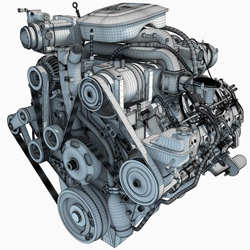P0C59 Engine Trouble Code
Meaning of P0C59 engine trouble code is a kind of powertrain trouble code and when your car's 'P0C59 Check Engine' light comes on, it's usually accompanied by a sinking feeling in the pit of your stomach. The light could mean a costly problem, like a bad catalytic converter, or it could be something minor, like a loose gas cap. But in many cases, it means at minimum that you'll be visiting the car dealer to locate the malfunction and get the light turned off.
P0C59 Fault Symptoms :
|
If one of these reasons for P0C59 code is occuring now you should check P0C59 repair processes.
Now don't ask yourself; What should you do with P0C59 code ? The solution is here : |
P0C59 Possible Solution:

|
Power Steering Pressure (PSP) Switch Malfunction In Key On, Engine Off Self-Test, this DTC indicates the PSP input to the PCM is high. In Key On, Engine Running Self-Test, this DTC indicates that the PSP input did not change state. Steering wheel must be turned during Key On, Engine Running Self-Test PSP switch/shorting bar damaged SIG RTN circuit open PSP circuit open or shorted to SIGRTN PCM damaged. |
P0C59 Code Meaning :
| P | 0 | c | 5 | 9 |
|---|---|---|---|---|
| OBD-II Diagnostic Powertrain (P) Trouble Code For Engine | Intake Valve Control Solenoid Circuit Low | Cylinder 1 Injector Circuit Low | Reverse Input Circuit |
Is the fuel pump sometimes not priming when you turn the key to ON(II)? Start by measuring the fuel pressure and checking whether you have bright white-bluish spark at all four plugs. The mechanical timing is also something that you should check, as we mentioned above.
P0C59 OBD-II Diagnostic Powertrain (P) Trouble Code DescriptionP0C59 engine trouble code is about Reverse Input Circuit.Main reason For P0C59 CodeThe reason of P0C59 OBD-II Engine Trouble Code is . |
P0C59 DTC reports a sensor fault, replacement of the sensor is unlikely to resolve the underlying problem. The fault is most likely to be caused by the systems that the sensor is monitoring, but might even be caused by the wiring to the sensor itself.

